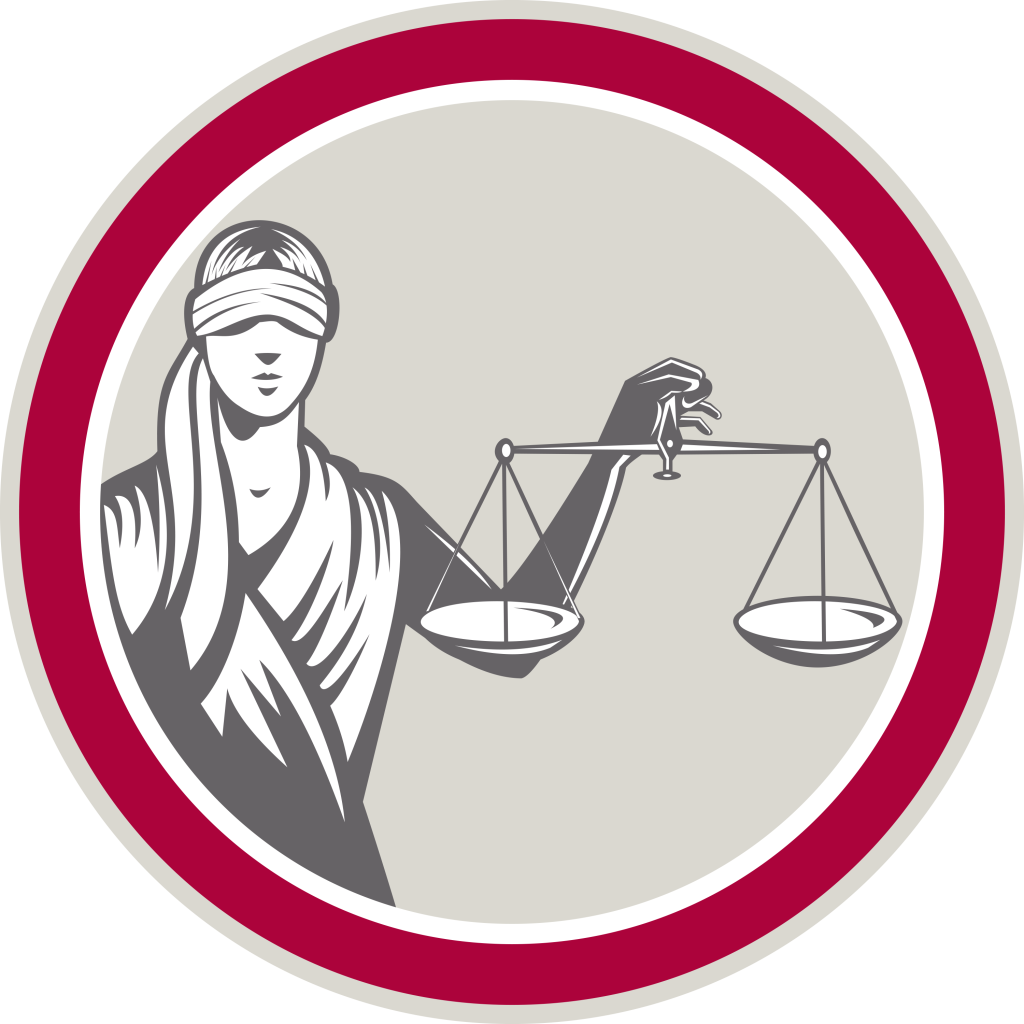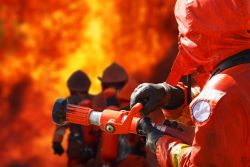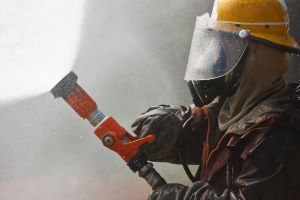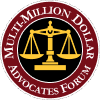Your Rights!
Fire Burn Injury Lawsuits
Fire Burn Injury Claims in Florida – A Comprehensive Guide for Victims and Families
Fire burns can cause catastrophic injury and accidental death. Our Florida burn injury lawyers have handled many claims throughout the US, including Florida, on behalf of victims injured in fires and explosions. Understanding the legal avenues available for those affected by fire injuries can be important to getting the financial support and justice for the victims or their families. If you were burned in an accident, or a loved one died in a fire in Florida, you could be entitled to substantial compensation. We aim to get answers for the victims and to hold those accountable for their negligence. Call us at 800-337-7755 for a free consultation or Chat with our agents today.
Understanding Fire Injuries in Florida
There are varying degrees of burns which are a common result of fires:
- First-Degree Burns: These are the least severe, affecting only the outer layer of the skin (epidermis). Symptoms include redness and pain. Treatment usually involves over-the-counter pain relief and cooling the burn with water.
- Second-Degree Burns: These burns affect both the epidermis and the next layer of skin (dermis). They can cause swelling, redness, pain, and blistering. Treatment may involve antibiotics to prevent infection, debridement and special bandages. We often see this type of burn in a pressure cooker explosion.
- Third-Degree Burns: These are more severe, affecting deeper tissues and can cause white or blackened, charred skin that may be numb. Treatment typically requires hospitalization, possible skin grafts, and specialized wound care.
- Fourth-Degree Burns: These are the most severe, affecting all layers of the skin and underlying tissues, possibly damaging muscles and bones. Treatment often requires long-term medical care, including surgeries and rehabilitation.
Smoke inhalation and psychological trauma are also critical concerns in fire incidents. Smoke inhalation can lead to respiratory issues and requires immediate medical attention. Psychological impacts, such as PTSD, are also common and can be addressed through counseling and therapy.
Understanding the severity and required treatments of these injuries can be helpful in framing effective legal claims for compensation and care.
Legal Framework for Fire Injury Claims in Florida
In Florida, a key aspect of these laws is the doctrine of negligence, which forms the basis of most fire injury claims. This means that a party (individual or entity) can be held legally responsible for injuries caused by their failure to exercise reasonable care.
In fire injury cases, this could involve various scenarios like a landlord not adhering to fire safety regulations, a company neglecting proper maintenance of fire hazards, or manufacturers producing defective products that lead to fires. Florida law also considers comparative negligence, which may reduce compensation if the victim is found partially at fault.
Additionally, Florida’s building codes and fire safety standards are integral to these claims. Failure to comply with these standards can be seen as a breach of statutory duty, further strengthening a victim’s claim. Understanding these nuances is often crucial for anyone seeking compensation for fire-related injuries in Florida.

Types of Fire Injury Claims
Fire injury claims in Florida can arise from various scenarios:
- Residential Fires: These claims often stem from incidents in homes where negligence or faulty products are to blame. Negligence might involve a landlord’s failure to adhere to fire safety standards or improper maintenance of electrical wiring. Faulty products could include defective appliances or flawed electrical components that ignite a fire.
- Commercial Fires: Fires in commercial settings, such as offices, factories, or retail spaces, can lead to claims if they result from inadequate safety protocols, poor maintenance, or violations of fire codes. Employers or building owners could be held liable for injuries sustained in such fires.
- Wildfires: In Florida, where wildfires can be a significant risk, liability often becomes complex. These claims may involve not only property damage but also personal injuries or fatalities. Determining liability might include investigating whether adequate fire management practices were followed or if negligence in controlling a fire led to its spread.
- Product Liability Cases: Defective products causing fires lead to claims under product liability law. This could involve anything from small appliances to larger systems like heating units, heating pads, heating blankets, pressure cookers, air conditioners, blenders, coffee makers and more. Manufacturers, designers, or distributors could be held responsible if their product is found to have a defect that caused a fire, leading to injuries.
Each type of fire injury claim requires a detailed investigation to establish liability and assess damages. In Florida, where fire incidents can vary widely from urban to rural settings, understanding the specific legal context of each type of fire is crucial for a successful fire injury lawsuit.

Establishing Negligence in Fire Injury Cases
Establishing negligence in fire injury lawsuits involves a multi-step legal process where the plaintiff must prove that the defendant had a duty of care and breached this duty, leading to the injuries sustained.
- Duty of Care: The first step is establishing that the defendant owed a duty of care to the plaintiff. This could mean a property owner’s duty to adhere to fire safety codes, a manufacturer’s duty to produce safe products, or an employer’s responsibility to maintain a safe working environment.
- Breach of Duty: Next, it must be demonstrated that this duty of care was breached. Examples in fire cases could include a landlord failing to install smoke detectors, not providing a fire extinguisher, a company neglecting regular maintenance of electrical systems, or a manufacturer producing an appliance with known defects.
- Causation: The plaintiff must then show a direct link between the breach of duty and the injuries sustained. This means proving that the fire (or subsequent injuries) would not have occurred if it weren’t for the defendant’s negligence.
- Damages: Finally, it must be shown that tangible damages resulted from the incident. This can include medical expenses, property damage, lost wages, and pain and suffering.
In Florida, understanding and proving these elements in the context of fire cases is generally essential for a successful fire injury lawsuit. Each case requires a thorough investigation to gather evidence supporting these claims.
InterNACHI guidelines for the useful life of appliances
The International Association of Certified Home Inspectors (InterNACHI) provides guidelines regarding the estimated useful life of various household appliances. These guidelines serve as a useful reference for homeowners to gauge the average lifespan of appliances under normal usage conditions. Understanding these timelines can help in planning for replacements and budgeting for home maintenance. It’s important to note that the actual lifespan of an appliance can vary based on usage, maintenance, and individual product quality. For detailed information on the useful life of specific appliances as per InterNACHI guidelines, it’s recommended to consult their official resources or website.
Compensation in Fire Injury Claims
In fire injury claims, the range of potential compensation extends beyond immediate medical costs and encompasses several categories:
- Medical Bills: Covers all medical treatments related to the injury, including hospital stays, surgeries, medications, rehabilitation, and any future medical expenses resulting from the injury.
- Lost Income and Earning Capacity: Compensation for lost wages if the injury prevents the victim from working, both in the short and long term. This also includes loss of earning capacity if the victim can no longer work in the same capacity as before the injury.
- Pain and Suffering: This includes compensation for physical pain and emotional distress caused by the fire, such as anxiety, depression, and trauma. The severity and duration of the pain and suffering are considered in determining this compensation.
- Punitive Damages: In cases of gross negligence, where the responsible party’s actions were particularly reckless or egregious, punitive damages may be awarded. These are intended to punish the wrongdoer and deter similar future conduct.
- Property Damage: If personal property was damaged or destroyed in the fire, victims could receive compensation for repair or replacement costs.
Wrongful Death Damages After a Fatal Fire
In the tragic event of a fatal fire, the victim’s family may pursue a wrongful death claim. Compensation in such cases can include:
- Funeral and Burial Expenses: Costs associated with funeral services and burial or cremation.
- Loss of Support and Services: Financial support that the deceased would have contributed to their family, as well as the value of services they provided.
- Loss of Companionship and Protection: Compensation for the emotional loss and companionship for the surviving family members.
- Mental and Emotional Pain and Suffering: This covers the mental anguish and suffering experienced by the family due to the loss of a loved one.
- Punitive Damages: Similar to individual injury claims, in cases of gross negligence, punitive damages may also be pursued.
Accurately assessing all damages, both economic and non-economic, is crucial to ensure fair compensation. Legal assistance is often necessary to navigate these complex calculations and to advocate for the full extent of damages deserved.
Steps to Take After a Fire Injury
Consider the following steps after a fire injury:
- Seek Medical Attention: Prioritize your health by seeking immediate medical care, even for seemingly minor injuries. Burns and smoke inhalation can have delayed symptoms.
- Document the Incident: As soon as it is safe, document the scene. Take photos of the area where the fire occurred, any injuries sustained, and the source of the fire if identifiable.
- Gather Witness Information: If there were any witnesses to the incident, collect their contact details. Their accounts can be valuable in substantiating your claim.
- Preserve Physical Evidence: Keep any damaged clothing or personal items as they were at the time of the incident. Do not attempt to repair or clean them.
- Report the Incident: Report the fire to the appropriate authorities or responsible parties, such as property managers or product manufacturers, as soon as possible.
- Keep Medical Records and Receipts: Maintain a file of all medical treatments, diagnoses, prescriptions, and related expenses. This includes future medical appointments and rehabilitation costs.
- Avoid Immediate Repairs: Don’t start repair work or alter the scene of the fire until it has been documented and investigated, unless necessary for safety.
- Refrain from Giving Statements: Be cautious about providing detailed statements to insurance companies or other parties involved without legal advice.
- Consult with an Attorney: Consider consulting a Florida personal injury attorney experienced in fire injury claims. They can guide you on the next steps and help protect your legal rights.
- Follow Up on Treatment: Continue to follow medical advice and attend all follow-up appointments. Document any ongoing symptoms or issues related to the injury.
Remember, the actions taken immediately after a fire injury can significantly impact the outcome of a potential legal claim. Being thorough and cautious during this time is crucial.

The Burn Injury Claims Process: From Filing to Resolution
- Filing the Claim:
- Initiate by filing a burn claim with the party responsible for the fire.
- Include detailed information about the incident, injuries, and damages.
- Documentation and Evidence Collection:
- Collect and organize all evidence, such as medical records, photos of injuries, fire reports, and eyewitness accounts.
- Insurance Company Negotiations:
- Negotiate with the insurance companies for a fair settlement.
- Be prepared for initial low offers; negotiations can be a back-and-forth process.
- Legal Representation (consider this first):
- Engage a personal injury attorney experienced in fire-related cases.
- An attorney can handle communication with insurance companies and opposing parties.
- Filing a Lawsuit:
- If negotiations fail, your attorney may advise filing a lawsuit.
- The lawsuit should detail the negligence, injuries, and sought compensation.
- Discovery Phase:
- Exchange of information and evidence between parties.
- Includes depositions, document requests, and interrogatories.
- Mediation and Pre-Trial Negotiations:
- Attempt to settle the case before it goes to trial.
- Mediation involves a neutral third party to facilitate a resolution.
- Trial:
- If a settlement isn’t reached, the case proceeds to trial.
- Presentation of evidence, witness testimonies, and legal arguments before a judge or jury.
- Verdict and Settlement:
- A verdict is given if the case goes to trial.
- Settlements can be reached at any time during the process.
- Appeals Process:
- If necessary, the case can be appealed to a higher court.
Overview of a Fire Injury Lawsuit in Florida
A fire injury lawsuit in Florida typically involves proving that the defendant’s negligence led to the fire and subsequent injuries. Florida’s comparative negligence system may affect compensation, reducing it in proportion to the victim’s degree of fault, if any. The legal process is governed by Florida’s personal injury laws and statutes of limitations. Plaintiffs need to file their lawsuit within a specific time frame from the date of the injury. The complexity of fire injury cases often requires expert testimonies to establish the cause of the fire, the extent of injuries, and the impact on the victim’s life. Legal representation is often crucial to navigate the intricacies of such lawsuits effectively.
Hiring a Fire Injury Attorney in Florida
Hiring a fire injury attorney in Florida, particularly one nearby, is a key step in effectively handling a fire injury lawsuit. An experienced “fire injury lawyer near me” brings knowledge in Florida’s fire injury law, important for navigating the legal intricacies of such cases. They can adeptly handle negotiations with insurance companies, often a complex and challenging process. Moreover, they advocate vigorously on your behalf, aiming to secure maximum compensation for your injuries and losses. Their local presence means they are familiar with Florida’s legal landscape and can offer personalized and accessible service, crucial for timely and effective legal support.
Case Examples
- Stove Fire in an Apartment Complex: Claims may arise from incidents where an old and rusted stove causes a fire, pointing to potential negligence in appliance maintenance by the property management.
- Apartment Fire Due to Unmaintained Electrical Cables: Owners who fail to maintain electrical systems might face claims for fires caused by faulty wiring.
- Elevator Fire: This uncommon but possible scenario can lead to claims if the fire is linked to mechanical or electrical malfunctions within the elevator system.
- School Fire: Claims could focus on inadequate safety protocols, poor maintenance, or negligence in fire hazard management within the school premises.
- Product Explosion: Fires resulting from product explosions, such as a pressure cooker, smartphone or a battery pack, could lead to product liability claims against manufacturers.
- Building Gas Leak Causing Fire and Explosion: Property owners or gas service providers might face claims if a gas leak that they should have detected or prevented causes a fire.
- Airplane Fire: Such incidents can lead to complex litigation involving aviation regulations, manufacturer liability, and maintenance issues.
- Smoke Inhalation Injuries: Even if a fire doesn’t cause direct burns, smoke inhalation can lead to serious health issues, forming the basis for compensation claims.
Each of these scenarios demonstrates the diverse nature of fire-related incidents and underscores the importance of skilled legal representation to navigate these complex cases effectively.
Burn Injury Safety and Prevention
It’s important to understand that both legal and code standards play a significant role in minimizing the risk of fire injuries. Florida’s building codes, for instance, include specific requirements for fire safety and prevention, such as mandatory installation of smoke detectors in residential and commercial buildings, adherence to electrical codes to prevent wiring-related fires, and regulations for fire escapes and exits.
Moreover, Florida law mandates regular inspections of public and commercial buildings to ensure compliance with these fire safety standards. These inspections are designed to identify potential hazards and ensure that all safety measures are up-to-date and functional.
For individuals and communities, adhering to these legal and code standards is essential. Awareness programs and educational resources provided by local fire departments and state agencies play a pivotal role in promoting fire safety. These resources typically cover a range of topics, from proper usage of fire extinguishers to guidelines on safe cooking practices and electrical appliance usage.
By understanding and complying with these standards, residents and property owners in Florida can significantly contribute to reducing the risk of fire incidents and enhancing overall safety.
Florida Fire Prevention Code
The Florida Fire Prevention Code is a comprehensive set of regulations aimed at ensuring fire safety across the state. It includes guidelines for fire prevention, life safety, and building construction standards to minimize the risk of fire-related incidents. The code is based on the National Fire Protection Association (NFPA) standards and the International Fire Code, with amendments specific to Florida’s unique needs. These regulations cover various aspects, including fire alarm systems, sprinkler systems, fire escape routes, and building materials. Compliance with this code is essential for property owners and managers to ensure the safety of occupants and visitors.

Florida Fire Injury Lawyers
Navigating fire injury claims in Florida often requires understanding the legal framework, potential damages, and the claims process. Seeking experienced legal counsel can be helpful for a successful outcome. For more information or to discuss a potential fire injury claim, contact our Florida burn injury law firm. Our experienced team is ready to assist you every step of the way.











